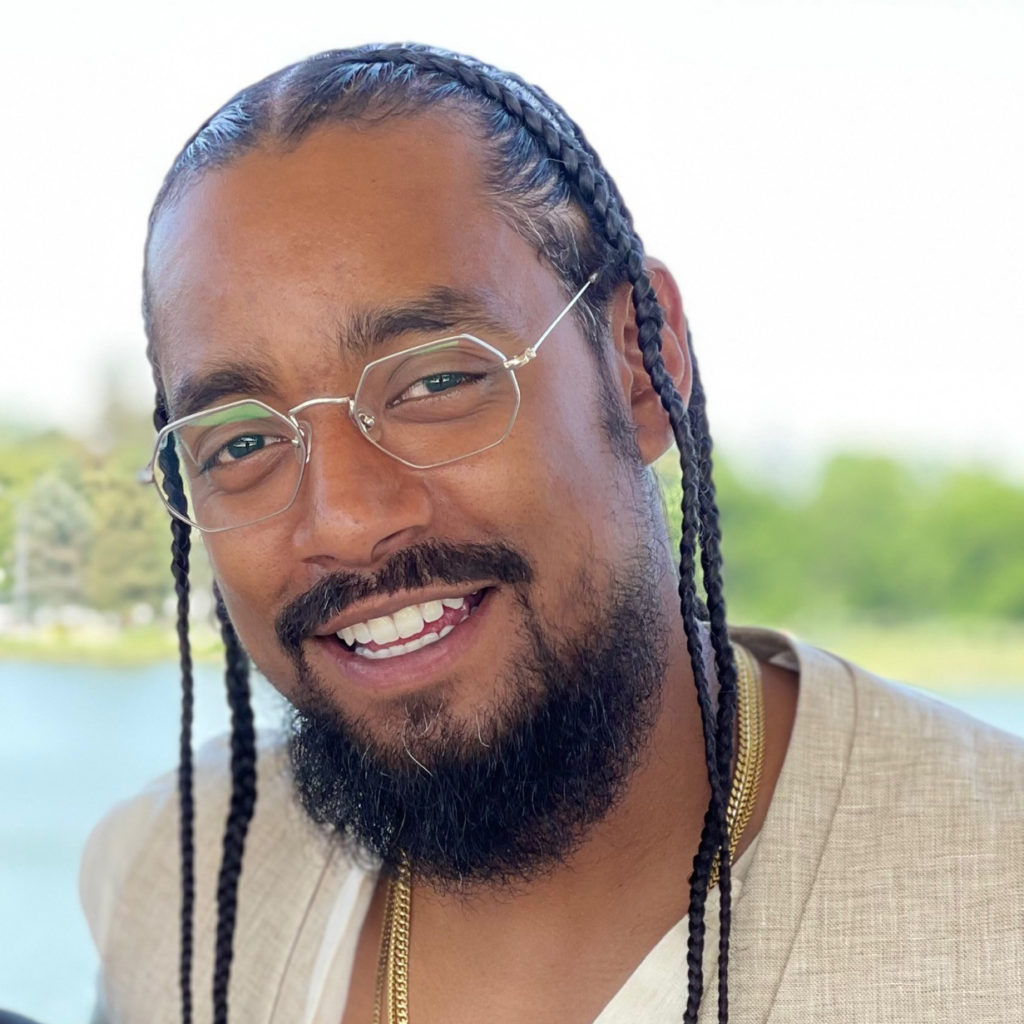View this post in ASL in a new tab, or scroll to the end of the article to watch the video on screen.
What is your position within WellPower?
Jarrett: My title is Clinical Case Manager I and my position is a liaison to the Bridges Program where I facilitate communication and collaboration between the criminal justice and mental health systems. I attend court, both virtually and in person, for the people we serve going through the competency and restoration processes — meaning the public defender doesn’t feel that the person has the wherewithal at the time to know what’s happening in the proceedings. The person is assigned to someone like me to help them through court proceedings and to connect them with housing, food and other resources.

What would you say are the most important elements of your Case Manager work when helping people stay engaged with services?
Jarrett: Communication. The court doesn’t use the strengthening language that we often use. People are often referred to as “incompetent” which can be very off putting, and I help reframe it in language that is more accepting. From that level, I communicate directly with the judge and lawyers, whether it be the public defender or the district attorney. Also maintaining professionalism and being open to communicating with any of these people, the evaluators, the restorers, at any time.
What impact have you seen WellPower have on our community?
Jarrett: The organization’s presence is pretty big in the community. We have the Dahlia Campus, which is not too far from where I grew up in Park Hill. WellPower is showing people that they are a piece of the community. Also, hiring people like myself. I come straight from the neighborhood; I identify with a lot of the people I grew up with. For me it’s more like I want to be a person of the community and the organization enables me to do that.
I’m also the co-chair of BOLD ERG (Black Organizers, Leaders and Do’ers / Employee Resource Group), and we’ve worked with different levels of WellPower to try to strengthen the presence and strengthen the bond the organization has with the Black community. I think that WellPower has been very receiving to that. I always encourage staff to be a part of the ERGs because that’s what we’re here for, and it makes the day go by a little more smoothly because it isn’t all crisis work. It’s crisis and community, if we strengthen the community maybe we’ll have less crisis work.
Can you tell me about a particularly impactful moment in your career?
Jarrett: The first year of my career was very powerful. I was inexperienced and was being placed in front of a lot of people I’ve probably “mis-defined” in my head. As I got older and started working with the people we serve, I realized the intricacies of their different diagnoses and it was eye opening. I was also very against pharmaceutical medications, but I would see how medication would help the people that we serve and get them back on the right path.
What parts of your work are you most passionate about?
Jarrett: Recruitment. I love my community, and there are plenty of people in my community like myself who can work for WellPower. When I first started, I felt like LeBron James – like I was drafted by the organization I love working for the organization and I wouldn’t work anywhere else. I try to get people like myself: people of color, Black, Hispanic, Latinx in the doors. I really take pride in just getting as many people writing my name down as a reference as possible. I see that as part of my duty as well. I am a diplomat of WellPower, so for me to go out into my community and speak good things is only going to bring more people in.
What does compassion mean to you in the context of your work?
Jarrett: Even if I’m disagreeing with everything a person has to say, compassion to me is still giving him or her my full heart and my full support. This is my job, to work with people who may not be in the best headspace all the time. To see them as everything they are, and maybe everything that they don’t want to be. I had a guy tell me that he doesn’t see color as we were talking about diversity which could be a slap in my face, but we’re not talking about me. I said to him, “Ok, you don’t see color. And sir, do you see how that could be problematic moving forward in your relationships?” I don’t mean it out of a place of harshness or harm, but my compassion comes from wanting to see people obtain their full being. My compassion comes from trying to motivate them to be 100% of who they could be.
Any other thoughts?
Jarrett: WellPower is kind of like a family; it is more friendly than other workspaces I’ve been in, and it feels like we care about each other. I really appreciate that; it always feels like the people at WellPower are trying.
And can you put at the end: Black Lives Matter.


